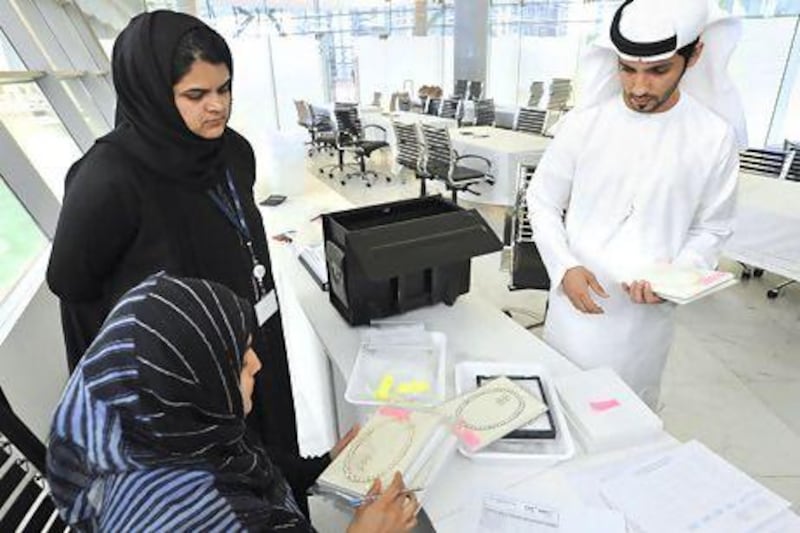After the close of business on Wednesday night, Mohammed Al Suwaidi struggled to lift a large locked briefcase onto a plain white table in a secret back room off the trading floor of the Dubai Diamond Centre.
The bulky black sample bag with a combination lock, the type wheeled through airports by salesmen the world over, contained no ordinary cargo. This was a precious consignment and its arrival at the Dubai Multi Commodities Centre marked a historic moment for the UAE.
Inside the bag were some 5,000 pearls grown at Mr Al Suwaidi's farm off the coast of Ras Al Khaimah and as such are the first commercial consignment of the lustrous beads that once made the UAE famous to be made available in more than 80 years.
"UAE pearls were the finest in the world for 7,000 years," Mr Al Suwaidi said with pride. "Now they are available again."
For the past two weeks the RAK Pearls founder has been hand grading, sorting and packaging this rare collection of pearls in preparation for the big sale on Sunday. The historic weight of the moment is not lost on him.
Mr Al Suwaidi swallowed hard as he turned the combination dials on the briefcase to the correct position to allow the locks to open with a loud clunk. Very gently he folded back the briefcase lid and started to remove numbered clear plastic bags, glass trays and small plastic pots all filled with pearls of astonishing quality.
Some seemed to glow from within in a golden hue, others were almost silver, like beads of mercury, yet more possessed a bluish lustre. .
"They are beautiful," Mr Al Suwaidi said in a hushed, almost reverent tone. Although he was standing on a trading floor and he was about to auction a large quantity of precious jewels to the highest bidder, Mr Al Suwaidi does not possess a salesman's zeal. Rather, he talks of his pearls like a proud father.
"I have known them all since they were seeds," he says. From that seeding, with a mother of pearl bead, it takes four or five years for the oysters to grow cultured pearls.
"These are not mass-market cultured pearls," Mr Al Suwaidi says. "These are Gulf pearls. You will not see this colour of pearl from anywhere else. This is why royalty all over the world has prized our Gulf pearls for thousands of years. Maharajas and queens and kings," he adds.
Like most proud parents, Mr Al Suwaidi secretly has a favourite. "I really love the blue baroque Keshi pearls," he says, describing the tiny misshapen jewels that are produced naturally by the farmed oysters.
Keshi pearls are extremely rare and are as close as it comes to a natural pearl today. "We cannot really call them natural as they are a by-product of the farming process," Mr Al Suwaidi says. "But they are not seeded. They are produced only by the oyster, not man."
He holds a bag of several hundred of the tiny misshapen beads on his outstretched palm. As the light catches them they glint and dance like the blue flame of a gas jet. "They are very alluring," he says.
The pearls on offer are expected to fetch north of Dh1 million, according to conservative estimates, but this process is much more than a business deal to Mr Al Suwaidi.
"To me this is our heritage that was lost … when the oil and gas came and the Japanese invented the cultured pearl," he said. "But now it is here for all to see again."





